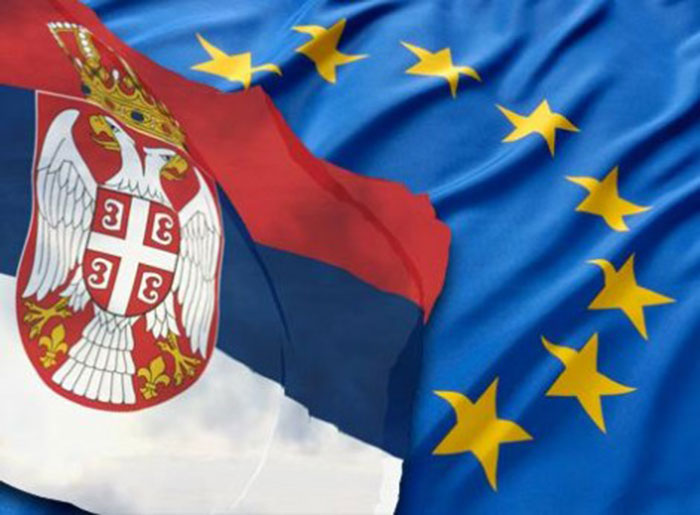The Delegation of the European Commission in Belgrade was established in the then Socialist Federative Republic of Yugoslavia (SFRY) in 1982, following the signing of co-operation Agreements between the SFRY and the then European Economic Community (EEC). The Delegation’s name has changed since December 2009 to “Delegation of the European Union to the Republic of Serbia” in line with the entering into force of the Lisbon Treaty.
This change also reflects the increased political role of our office in line with the political and economic developments in view of EU-Serbia relations during the last years.
In October 2000 Serbia took a decisive step to end its political and economic isolation and embark on the road of European Integration, taken by the whole of Central and Eastern Europe and its neighbours in the Western Balkans.
During the Thessaloniki European Council in 2003, Serbia – along with 5 other Western Balkans countries – was identified as a potential candidate for EU membership.
In 2007, the government took credible measures to envigor co-operation with the International War Crimes Tribunal in The Hague.
In December 2009, the visa liberalization regime allowed Serbian citizens to travel within the Schengen area without a visa, showing that the process can deliver concrete results directly benefiting citizens. Just a couple of days later, President Tadic delivered to the Swedish presidency Serbia’s application for membership to the EU.
In February 2010, the Interim Agreement on Trade and trade related matters entered into force and in June the unfreezing of the Stabilisation and Association Agreement (SAA) was decided, putting Serbia solidly back on the path towards EU Membership. The SAA between the EU and Serbia entered into force in September 2013.
In March 2012 Serbia was granted EU candidate status.
On 19 April 2013, after ten rounds of often grueling talks in the EU-facilitated Dialogue in Brussels chaired by Catherine Ashton, the EU High Representative, Serbia’s Prime Minister Ivica Dačić and Kosovo Prime Minister Hashim Thaçi reached a landmark agreement aimed at aimed at normalising relations between Serbia and Kosovo*. Concrete results in the implementation of this agreement will bring about a brighter future and lasting stability to the region.
In line with the decision of the European Council in June 2013 to open accession negotiations with Serbia, the Council adopted in December 2013 the negotiating framework and agreed to hold the 1st Intergovernmental Conference with Serbia in January 2014.
On 21 January 2014, the 1st Intergovernmental Conference took place, signaling the formal start of Serbia’s accession negotiations.

